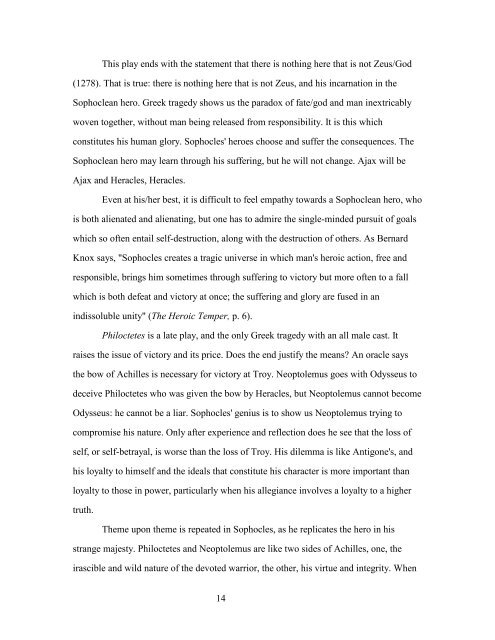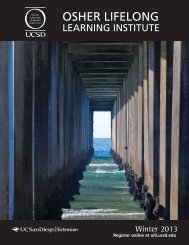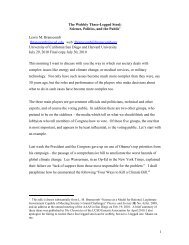1 Sophocles' Antigone Introduction, translation, and notes by ...
1 Sophocles' Antigone Introduction, translation, and notes by ...
1 Sophocles' Antigone Introduction, translation, and notes by ...
You also want an ePaper? Increase the reach of your titles
YUMPU automatically turns print PDFs into web optimized ePapers that Google loves.
This play ends with the statement that there is nothing here that is not Zeus/God<br />
(1278). That is true: there is nothing here that is not Zeus, <strong>and</strong> his incarnation in the<br />
Sophoclean hero. Greek tragedy shows us the paradox of fate/god <strong>and</strong> man inextricably<br />
woven together, without man being released from responsibility. It is this which<br />
constitutes his human glory. <strong>Sophocles'</strong> heroes choose <strong>and</strong> suffer the consequences. The<br />
Sophoclean hero may learn through his suffering, but he will not change. Ajax will be<br />
Ajax <strong>and</strong> Heracles, Heracles.<br />
Even at his/her best, it is difficult to feel empathy towards a Sophoclean hero, who<br />
is both alienated <strong>and</strong> alienating, but one has to admire the single-minded pursuit of goals<br />
which so often entail self-destruction, along with the destruction of others. As Bernard<br />
Knox says, "Sophocles creates a tragic universe in which man's heroic action, free <strong>and</strong><br />
responsible, brings him sometimes through suffering to victory but more often to a fall<br />
which is both defeat <strong>and</strong> victory at once; the suffering <strong>and</strong> glory are fused in an<br />
indissoluble unity" (The Heroic Temper, p. 6).<br />
Philoctetes is a late play, <strong>and</strong> the only Greek tragedy with an all male cast. It<br />
raises the issue of victory <strong>and</strong> its price. Does the end justify the means? An oracle says<br />
the bow of Achilles is necessary for victory at Troy. Neoptolemus goes with Odysseus to<br />
deceive Philoctetes who was given the bow <strong>by</strong> Heracles, but Neoptolemus cannot become<br />
Odysseus: he cannot be a liar. <strong>Sophocles'</strong> genius is to show us Neoptolemus trying to<br />
compromise his nature. Only after experience <strong>and</strong> reflection does he see that the loss of<br />
self, or self-betrayal, is worse than the loss of Troy. His dilemma is like <strong>Antigone</strong>'s, <strong>and</strong><br />
his loyalty to himself <strong>and</strong> the ideals that constitute his character is more important than<br />
loyalty to those in power, particularly when his allegiance involves a loyalty to a higher<br />
truth.<br />
Theme upon theme is repeated in Sophocles, as he replicates the hero in his<br />
strange majesty. Philoctetes <strong>and</strong> Neoptolemus are like two sides of Achilles, one, the<br />
irascible <strong>and</strong> wild nature of the devoted warrior, the other, his virtue <strong>and</strong> integrity. When<br />
14









